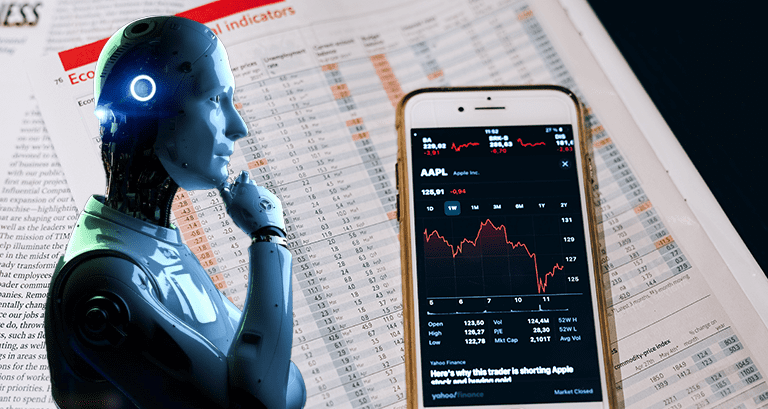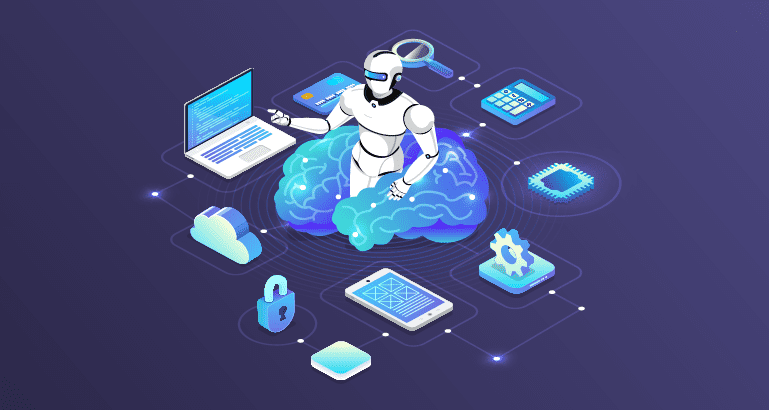From Numbers to Neural Networks: Exploring Generative AI's Impact on Finance
Generative AI can be incredibly helpful in the field of finance, offering a wide range of applications to improve processes, generate insights, and enhance decision-making. Generative AI has the potential to revolutionize the finance industry by automating complex tasks, providing deeper insights, and improving decision-making processes. However, it is important to note that with any advanced technology, proper regulation and oversight are essential to ensure its responsible and ethical use.
What is Generative AI?
Generative AI is a branch of artificial intelligence that focuses on creating new data based on patterns and examples from existing data. It goes beyond the traditional AI methods that are centered around classification and prediction. Instead, generative AI aims to generate new and original content that resembles the input data.
The Power of Generative AI in Finance
Generative AI has emerged as a powerful tool in the financial industry, revolutionizing various aspects of finance.
Let's explore some of the key areas where Generative AI is making a significant impact.
- Financial Market Prediction: Generative AI models can analyze historical market data and identify patterns and trends, which can be used to make predictions about future price movements of stocks, currencies, or other financial assets. This information can aid traders and investors in making more informed decisions.
- Risk Assessment: By processing large amounts of financial data, generative AI can assist in risk assessment and modeling. It can help identify potential risks in investment portfolios, credit lending, and other financial activities, allowing financial institutions to better manage and mitigate risks.
- Fraud Detection: Generative AI can be used to detect fraudulent activities by recognizing abnormal patterns and behaviors in financial transactions. This can help banks and other financial institutions to enhance their security measures and protect their customers from fraud.
- Algorithmic Trading: Generative AI can develop sophisticated trading algorithms that can execute trades based on real-time market data and predefined strategies. These algorithms can respond quickly to market changes and potentially optimize trading outcomes.
- Portfolio Optimization: AI-powered generative models can optimize investment portfolios by suggesting the best asset allocation based on risk tolerance, investment objectives, and market conditions, helping investors achieve their financial goals more effectively.
- Customer Service and Chatbots: Generative AI can be used to create intelligent virtual assistants and chatbots that can handle customer queries, provide personalized financial advice, and facilitate smoother customer interactions.
- Credit Underwriting and Assessment: By analyzing vast amounts of customer data, generative AI can assist in credit underwriting processes, helping financial institutions evaluate creditworthiness more accurately and efficiently.
- Natural Language Processing (NLP) in Finance: Generative NLP models can analyze unstructured data from financial news, reports, and social media to extract valuable insights, sentiment analysis, and trends that can impact financial markets.
- Financial Document Generation: Generative AI can automatically generate financial reports, invoices, and other documents, saving time and reducing human errors in administrative tasks.
- Scenario Analysis and Stress Testing: Generative AI can simulate various economic scenarios and stress tests to assess how financial systems, portfolios, or institutions might respond under different conditions, helping plan for potential crises or challenges.
The Future of Generative AI in Finance
The potential of Generative AI in finance is vast and ever-expanding. As technology advances and more data becomes available, we can expect even more transformative applications.
Some exciting developments on the horizon include:
- Risk prediction and stress testing: Generative AI models can help financial institutions predict and prepare for potential financial crises by simulating stress scenarios and assessing risk exposure.
- Fraud prevention and AML compliance: By continuously learning and adapting to new fraud patterns, Generative AI models can stay one step ahead of fraudsters and aid in regulatory compliance.
- Algorithmic trading and quantitative finance: Advanced Generative AI models can generate trading strategies based on complex market patterns, enhancing automation and efficiency in trading operations.
Conclusion
Generative AI is revolutionizing the finance industry and empowering financial institutions and individuals alike to make data-driven decisions, manage risks, and improve customer experiences. Embracing Generative AI can unlock new opportunities, streamline processes, and drive innovation in the financial landscape. To delve deeper into this fascinating field, we recommend exploring research papers, attending conferences, and collaborating with AI experts and data scientists.
Explore the potential of Generative AI in finance with Nu10’s team of experts, ready to help you innovate and develop. By leveraging the power of neural networks and data, financial institutions can stay ahead of the curve and navigate the complexities of the modern financial world with confidence. The future of finance awaits!
About Author
Mohit Kataria
Mohit, a career entrepreneur with 21+ years of experience, specializes in conceptualizing large scale analytics initiatives and driving them to success. He co-founded Manthan Research & Analytics, later acquired by M3 and rebranded as m360 Research. He excels in building and scaling high performance teams.








